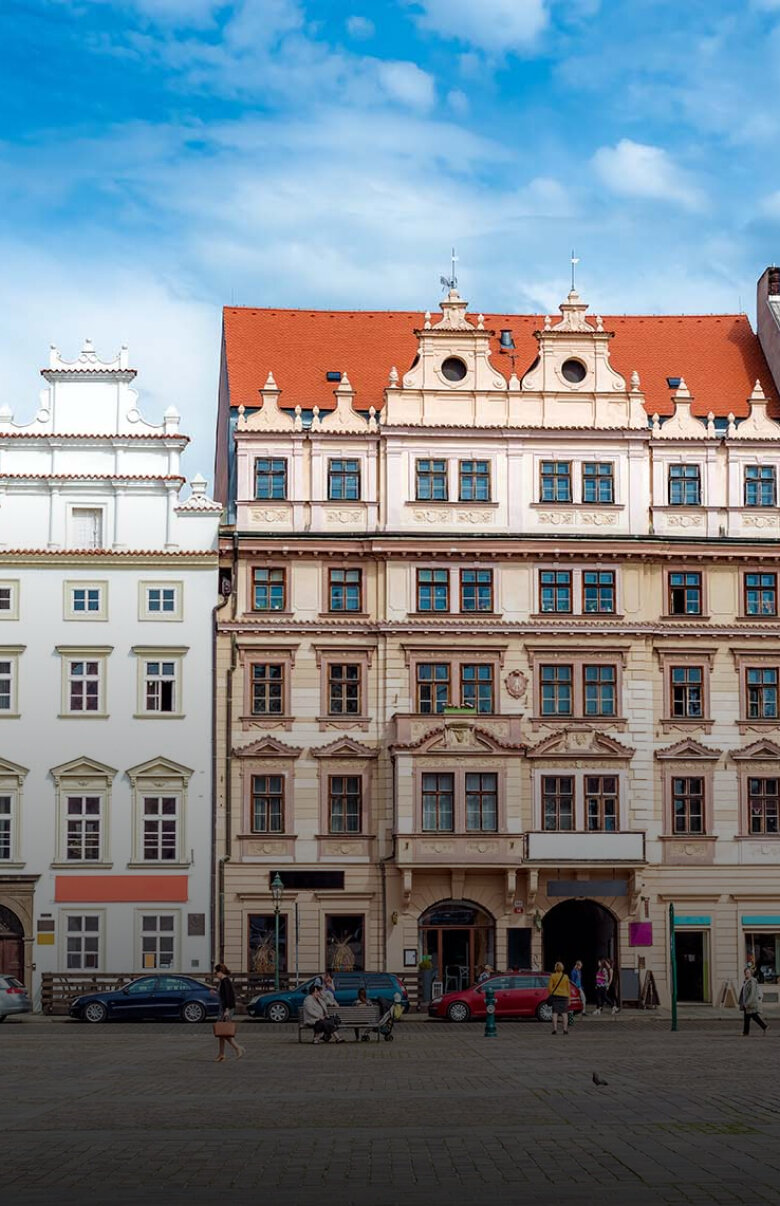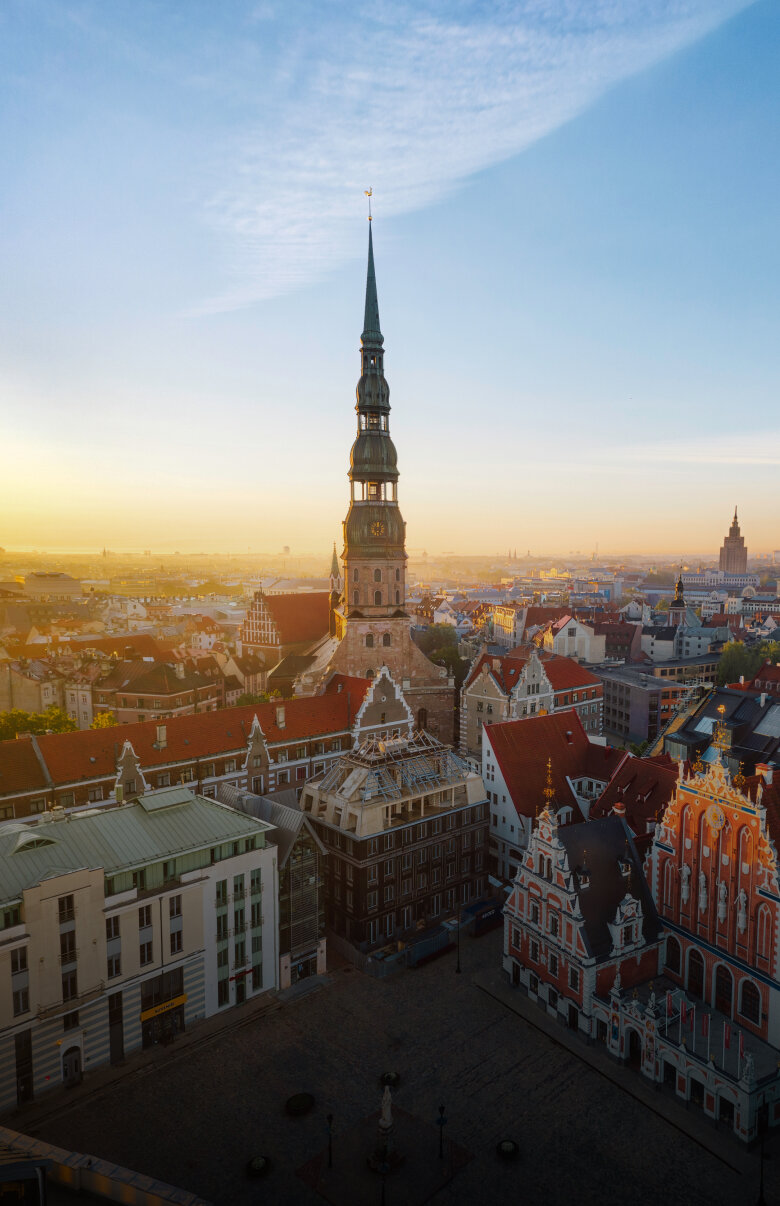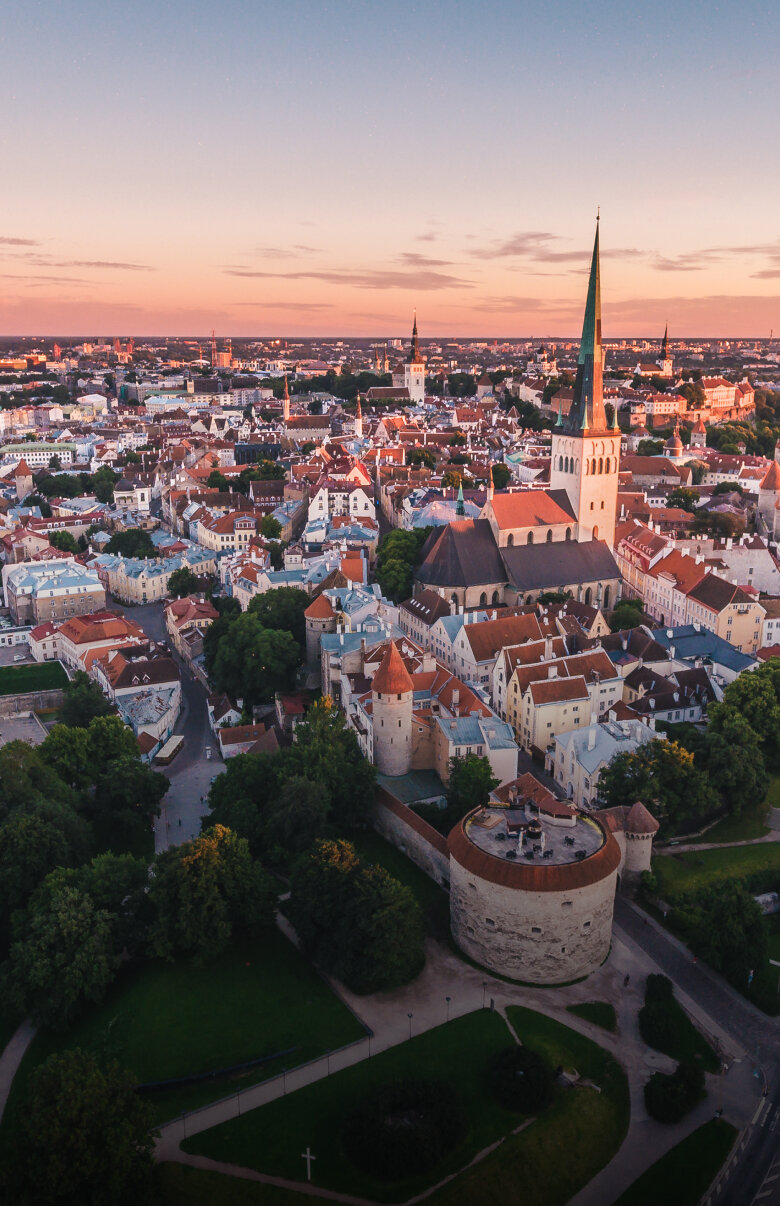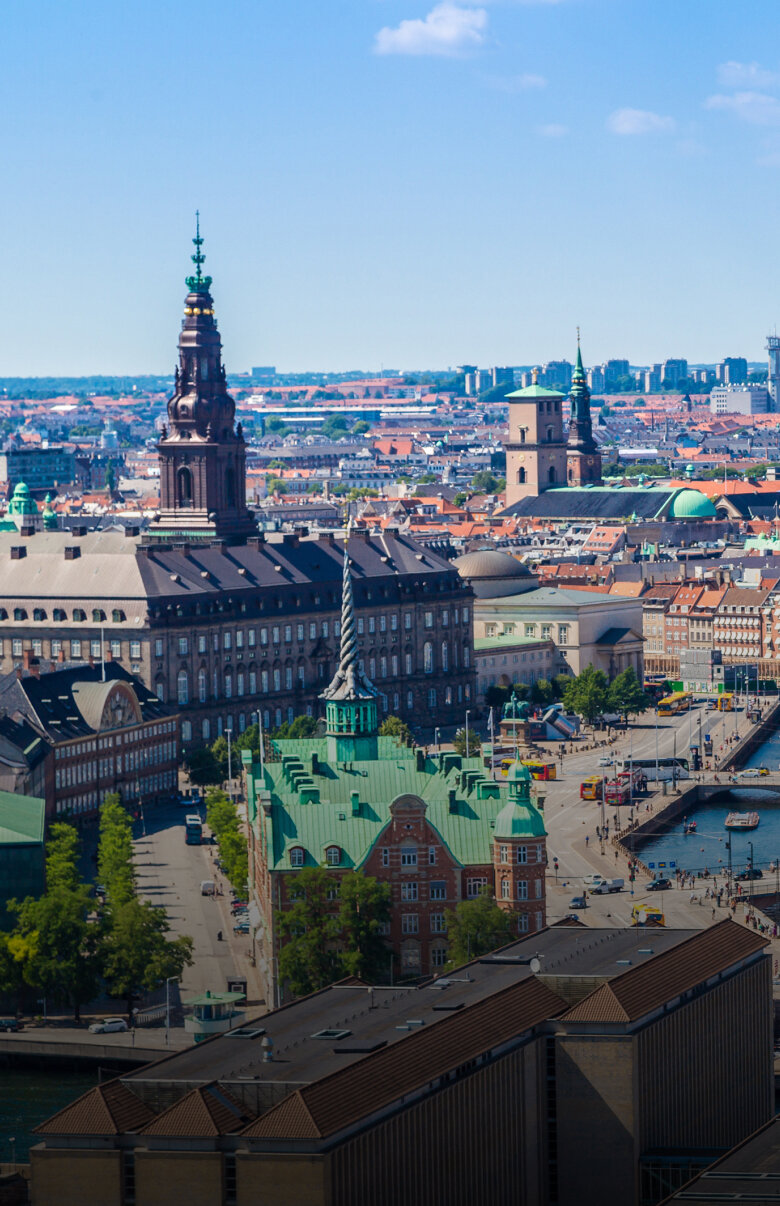Universities
Medical studies in Austria
An NC-free degree programme, no tuition fees and lectures in German - studying medicine in Austria offers you all this and much more. The universities in a country known not least for its beautiful nature and impressive cities attract countless medical students every year. Find out what other arguments speak in favour of studying in Austria here.
You are interested in Studying medicine abroad?
We are happy to advise you free of charge about the possibility of studying medicine abroad. futuredoctor supports you in obtaining a place to study medicine at over 21 universities in 9 countries.
What are the advantages of studying medicine in Austria?
Many universities outside Germany only offer the medical degree programme in English. This is not the case in Austria and all lectures are held in German, which makes it much easier for you to understand the complex topics. The degrees at all universities there are recognised both in Germany and in Europe. This means that you can start your medical career in any European country after successfully completing your studies. But these are not the only advantages!
NC-free
To be admitted to a medical degree programme at a university in Austria, you do not need an outstanding Numerus Clausus. However, there is a medical entrance test (MedAT), which you have to pass successfully. We'll help you prepare!
No tuition fees
In contrast to many other European universities, public universities in Austria do not charge tuition fees for medical studies. Only a semester fee of around 300 euros is payable per semester.
State-of-the-art healthcare system
The healthcare system in Austria is considered to be one of the most modern in Europe. The hospitals are optimally equipped and offer comprehensive, state-of-the-art services. Excellent conditions for learning medicine at a high level.
Medical studies in Austria: close to home and centralised
Austria is one of Germany's neighbouring countries and is not too far away from many German cities. This gives you the opportunity to make frequent visits to your home country. Another advantage is, of course, that there is no language barrier.
Austria is also very centrally located in Europe and has an excellent transport network, which means you can easily travel to neighbouring countries.
Fascinating landscape and historic cities
Austria's breathtaking landscape offers you a mixture of impressive mountains, picturesque river valleys and crystal-clear lakes. German holidaymakers have long since discovered Austria for themselves.
Austria is also home to some of the most beautiful cities in Europe. The capital Vienna is known for its magnificent architecture and numerous cultural sights.

Study medicine abroad with futuredoctor
Do you dream of studying medicine, but the chances of getting a place in your home country are slim? We can help you find a suitable study place abroad.
Advantages at a glance:
- EU-wide recognised qualifications
- Study in English or German
- > 95% Success rate
- > 1,000 study places allocated
From the selection of universities and support in the application process to orientation and finding accommodation - we are at your side.
At which universities in Austria is it possible to study medicine?
If you live in Austria Study medicine there are various study locations to choose from. You have the opportunity to secure a place to study medicine at two private universities (Karl Landsteiner Krems and Paracelsus Salzburg) or four state universities:
Medical University of Vienna
Every year, the Medical University of Vienna offers 680 places on the diploma programme in human medicine. It is also possible to study dentistry there. The guidelines of the curriculum are problem-orientation, method-led examination and subject integration. It is also important for university teaching that students deal with specific medical issues, such as knowledge about gender-specific differences (gender medicine), at an early stage.
The aim of the programme is to train graduates to become competent doctors of medicine (Dr. med. univ.).
As a student city, Vienna offers you a wide range of activities to enrich your student life. As a cultural centre, Vienna has numerous entertainment options in the form of theatres, opera houses, museums and galleries. Many small parks and gardens offer you recreational opportunities and numerous bars and restaurants provide an exciting nightlife.
Medical University of Graz
The University of Graz is regarded as a centre of innovative cutting-edge medicine and places great emphasis on research. Both human medicine and dentistry are offered here. You will be taught the theoretical foundations and practical skills you need for your medical career in an integrative and subject-centred way.
Graz is located in the south of Austria and offers an ideal balance between culture, leisure and quality of life. Many green oases such as parks and green spaces invite you to go for walks and picnics. You can sample Austrian specialities in one of the many restaurants. The city is rich in cultural events, including concerts and film festivals.
Medical University of Innsbruck (MIU)
The Medical University of Innsbruck offers 360 places for new students of human medicine each year. The degree programme is made up of interdisciplinary modules. A special focus is placed on practice. Very early on in the programme Contact us with patients. In addition to studying human medicine, it is also possible to study dentistry at the MIU.
Innsbruck is a popular and attractive student city. As the city is picturesquely situated in the Austrian Alps, you can enjoy numerous leisure activities such as skiing, hiking and mountaineering. The city itself has a rich cultural scene characterised by concerts, theatre performances and film festivals.
Medical Faculty of the JKU Linz
The Faculty of Medicine at the Johannes Kepler University Linz was only founded in 2014 and therefore has state-of-the-art classrooms and laboratories. Medical teaching is at the cutting edge of science. The unique research specialisations include clinical ageing research and healthcare research.
The beautiful city on the Danube offers you a variety of ways to organise your student life. The mixture of small cafés, bars and clubs makes for a lively social atmosphere. In addition, life in Linz is somewhat cheaper compared to larger cities such as Vienna.
Paracelsus Medical University Salzburg (PMU)
The ultra-modern curriculum of the private PMU enables you to complete your degree in human medicine in just 5 years. Studying in small groups enables excellent supervision. The use of state-of-the-art VR and AR technologies ensures optimal knowledge transfer. The university has numerous international collaborations, so you have the opportunity to do an internship abroad at the Mayo Clinic in the USA, for example. This is regarded by experts as the best clinic in the world!
Surrounded by the Alps, the city offers a wide range of leisure activities and cultural events such as the Salzburg Festival. Your student life there won't get boring any time soon.
Karl Landsteiner Private University Krems
The medical degree programme at Karl Landsteiner University is divided into a three-year Bachelor's degree and a three-year Master's degree. On the basis of a modern curriculum, students at the private university are taught the knowledge required for the medical profession in an interprofessional, practical manner and in small groups.
The city of Krems is located on the Danube in the north-east of the country. It has a compact size and therefore exudes the charm of a small town with a personal atmosphere. Numerous vineyards surround the town. The surrounding countryside offers countless outdoor opportunities such as hiking or cycling.
What are the requirements for studying medicine in Austria?
The good news is that studying medicine in Austria is NC-free, so you don't need an outstanding average grade to apply.
However, there are certain admission requirements. The basic requirement is, of course, a general higher education entrance qualification/ university entrance qualification, which is acquired with the Matura or Abitur.
As there are a large number of applicants and only a limited number of places to study medicine, the public universities in Austria have come up with something different for the admissions procedure: the MedAT admissions test. This test takes place once a year and is specific to the place of study. This means that you can only start your medical studies in Austria where you have successfully passed the test.
The test is in multiple-choice format and plays the biggest role in your admission. It tests your skills in the following areas: Cognition, basic science, text comprehension and verbal reasoning as well as social-emotional skills. If you fail the test as an applicant, you can try again the following year. We will help you to ensure that this is not necessary 😉
The private universities have their own selection procedure with a different entrance test.
The programme is taught in German, so you will need a minimum language level of C1 if German is not your native language.
The Johannes Kepler University in Linz and the Medical University of Graz also require proof of your knowledge of Latin. If you do not have (sufficient) proof of previous Latin lessons (at least 10 hours per week), it is necessary to take a supplementary examination.
Structure and content of medical studies in Austria
The structure of the medical degree programme in Austria differs slightly between the individual universities.
The Medical studies at the University of Vienna and the Medical University of Innsbruck is divided into three study sections, which in turn are divided into different thematic blocks. How long does it take to study medicine in Austria? The medical degree programme lasts a total of six years. The first two semesters make up the first stage, which is mainly about acquiring social skills and understanding health, diseases and functional systems of the human body. Here you will acquire various skills and abilities that you will need in the second stage of your studies, which lasts six semesters and provides you with knowledge in the fields of physiology and pathophysiology. The final stage, the eleventh and twelfth semesters, is the Clinical Practical Year (CPY). During this year, you will familiarise yourself with everyday working life in medicine on various wards at MedUni Vienna's university hospitals or cooperating teaching hospitals. Here you will acquire various skills and abilities that are extremely important for your future career as a doctor.
The Johannes Kepler University Linz and the Medical University of Graz have divided the medical degree programme into a three-year Bachelor's degree and a three-year Master's degree. During your bachelor's degree, you will acquire interdisciplinary basic knowledge focussed on specific topics and organs, as well as practical experience from the first semester onwards. After completing your Bachelor's degree, you will be authorised to begin a Master's degree in Human Medicine. Contents of the Master's degree programme include Surgerypaediatric cardiology, emergency medicine, psychology and sports medicine. The last year of study before you graduate is your clinical internship year, during which you will experience everyday hospital life in practice in various clinical departments.
Studying at the Karl Landsteiner Private University is divided into a three-year Bachelor's degree programme in Medical Science and a subsequent three-year Master's degree programme in Human Medicine, which primarily takes place in clinical teaching at the three university hospitals in Krems, St. Pölten and Tulln.
At the Paracelsus Medical University (PMU) the medical degree programme is also divided into a Bachelor's and Master's degree. What is special about this university is that studying human medicine only takes five years due to a precise curriculum, shorter holiday periods and training in small groups.
How much does it cost to study medicine in Austria?
To give you your Financing medical studies abroad to be able to do so, thorough consideration needs to be given to the costs incurred
You do not have to pay tuition fees at public universities in Austria. There is only a semester fee of around 385 euros. The entrance test, which is required for the application, costs 110 euros.
Private universities charge tuition fees in comparison to public institutions. Karl Landsteiner Private University charges 16,000 euros per semester to study human medicine. At Paracelsus Medical Private University Salzburg, the semester fee is around 20,000 euros per year.
The cost of living in Austria is slightly higher than in Germany. Depending on where you are studying, you will need to budget a little more money for food and rent in particular.
A Scholarship Scholarship can help you to Costs of the medical degree programme.
What you didn't know about Austria
Vienna is considered the most liveable city in the world. As of 2023, Vienna is the number one most liveable city according to the "Global Liveability Index". Vienna is also one of the greenest metropolises in the world. Over 53 per cent of the city area consists of parks and green spaces!
The Europe's highest waterfall can be found in Austria. With a height of 380 metres, the Krimml waterfall is a spectacular attraction that you shouldn't miss.
Land of the famous classical composers. Schubert, Bruckner, Mozart, Strass, Mahler - the list of musicians born in Austria is long. These musicians are commemorated in numerous museums, at music festivals and in the form of sweets (Mozartkugeln!).
Applying to study medicine in Austria
When applying for a Medical study place At public universities, it is important that your documents are complete and that you pass the MedAT. You should prepare well for this. It is also important that you familiarise yourself with the different Application deadlines of the various universities. We will help you prepare with the necessary information and ensure that you don't lose sight of the application process!
Are you ready to realise your dream of studying medicine in Austria? Contact us today and start your journey with futuredoctor. We look forward to accompanying you on your journey and working with you to realise your dream of a career in medicine.
By the way: If you don't have an Abitur but still want to fulfil your dream of studying medicine: There are countries where you can Studying medicine with a specialised baccalaureate can complete.
Do you live in the south of Germany and don't want to commute long distances? Then take a look at the following country: Medical studies Switzerland.
Starting signal
What are you waiting for? 🎉
Order your information pack now, find out more about studying medicine abroad and get started as a medical student!
Frequently asked questions
FAQs on studying medicine in Austria
What are the advantages of studying medicine in Austria?
Studying medicine in Austria offers numerous advantages: Lectures in German, internationally recognised degrees, no tuition fees at public universities, access to a state-of-the-art healthcare system, geographical proximity to Germany and a fascinating landscape and historic cities.
Is there a numerus clausus (NC) for studying medicine in Austria?
No, there is no NC for medical studies in Austria. Instead, you have to pass a medical entrance test (MedAT), which assesses your suitability for the degree programme.
How much does it cost to study medicine in Austria?
There are no tuition fees at public universities in Austria, but a semester fee of around 300 euros is payable. Private universities, however, charge tuition fees.
Which universities in Austria offer a medical degree programme?
You can study medicine at six universities in Austria: Medical University of Vienna, Medical University of Graz, Medical University of Innsbruck, Medical Faculty of the JKU Linz, Paracelsus Medical University Salzburg and Karl Landsteiner Private University Krems.
What are the requirements for studying medicine in Austria?
You do not need an outstanding grade point average (no NC), but you must pass the MedAT. German language skills at C1 level are required, and some universities require knowledge of Latin.
How is the medical degree programme in Austria structured?
The structure varies between universities. Many offer a six-year degree programme, divided into Bachelor's and Master's phases, with a mixture of theory, practice and clinical training.
How can I apply to study medicine in Austria?
Passing the MedAT is crucial for your application. You should prepare for the test in good time and observe the application deadlines of the respective universities.
What does Vienna offer as a study location for medical students?
Vienna, the most liveable city in the world, offers a rich culture, a wide range of leisure activities, green parks and an excellent infrastructure for students.
Are there alternatives to studying medicine in Austria for applicants without a high school diploma?
Yes, there are Countrieswhere you can also work with a Fachabitur to study medicine can. Futuredoctor can help you find the right options.
30 countries for your medical studies
The Netherlands
Groningen, Maastricht, Amsterdam, Leiden, Utrecht, Rotterdam

Switzerland
Basel, Fribourg, Berne, Geneva, Zurich, Neuchâtel, Lausanne





























